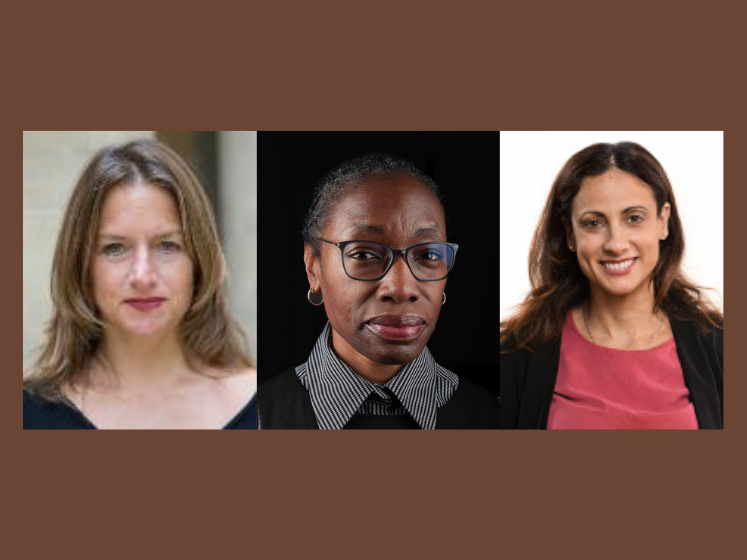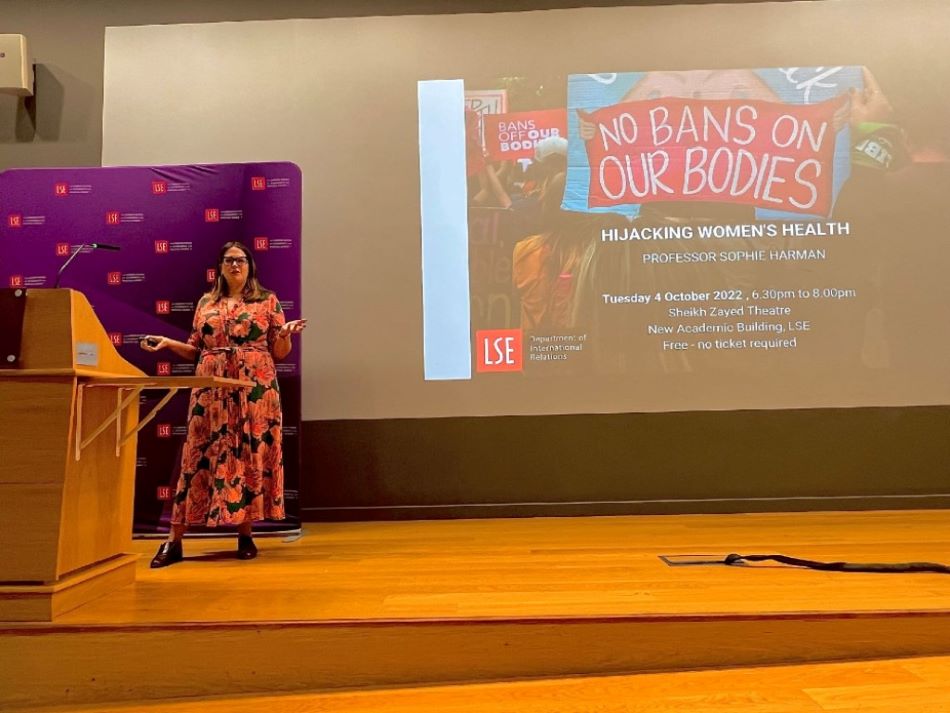
During Women’s History Month we take a moment to reflect on the experiences of women in our International Relations department and beyond, in a post–pandemic, digital world. We asked our department some questions about women in IR, the structural barriers they face, and what can be done to help correct current imbalances of women academics in IR.
Our former Head of Department, Professor of International Relations Karen E Smith, whose long career provides an insight into the changing culture of the IR field, describes her experience:
“The IR field has a considerably better gender balance than it did even 20-30 years ago, when I earned my PhD (though my PhD ‘class’ in IR at LSE was – if I recall correctly – evenly balanced). There are more and more women studying IR at all levels, and there is clearly a ‘pipeline’ of very talented women making their way to top positions as full professors or heads of research centres and think tanks in many countries.
Having said that, in my time at the LSE there have only ever been at most two female full professors in the IR department at any given time, though that situation should change in due course since the gender balance in the IRD has improved massively over the past few years. Elsewhere, the situation varies. I still receive requests for support and mentorship from women in other departments around the world where the gender balance is atrocious.”
There are more and more women studying IR at all levels, and there is clearly a ‘pipeline’ of very talented women making their way to top positions
The gender imbalance that Karen describes can also be seen across the UK. Female faculty members are concentrated at the lower income-band positions and across academia women make up only 28% of Professorships in the UK. This data is also limited in its design so we don’t get a fuller picture of the varying and diverse experiences of women and femme people in the academy. Although the Teaching, Research, and International Policy (TRIP) Project collects data worldwide, the design is US-Anglo-centric and doesn’t track racial or sexual identity. However, what we can see, in addition to gender imbalance in levels of recruitment, is that the intellectual culture within IR significantly favours male scholars. In the 2017 Trip Survey of US-based IR faculty members, there has been only one woman cited as one of the top 10 most influential scholars – Mary Finnemore. And this hasn’t changed since the 2006 TRIP Survey.
Across academia women make up only 28% of Professorships in the UK
So, what can be done to help correct current imbalances of women professors and academics in IR?
Mentoring schemes could help, as can supportive academic networks, Karen E Smith points out. LSE IR department’s Dr Katharine Millar signposts this South African study on the impact of female leadership on helping women to advance in academia. Nöelle Obers who led this study in a ‘small’ research institution in South Africa, emphasises the barriers women face – self-esteem, teaching commitments, and family responsibilities. She highlights that having a female Head of Department offers a space for mentoring and a role model for women in the faculty. The subsequent increase in supportive networks leads to an improved sense of self-esteem, important for accruing the social capital and research productivity needed when going for promotion.
Family friendly policies are also essential:
“Academia can allow for much more flexible working patterns than many other professions, but scholars still need a ‘room of their own’ in order to be able to write. Family-friendly policies are crucial, as for example in having guaranteed paid family leave (for mothers, fathers, and those who must care for ageing parents). Ensuring child-care is available at academic conferences (something that many scholarly associations still cannot afford to provide).
The pandemic had a deleterious effect on many academics, especially those who had to home-school children at the same time as they carried on with their day job. This tended to affect mothers more, at least from what we know about the impact it had on submissions to journals.
This could affect the speed at which women in particular may be able to progress, so institutions will need to consider ways of mitigating the continuing impact of the pandemic, including by extending the ‘tenure clock’ and providing additional sabbatical leave.” (Smith)
The pandemic had a deleterious effect on many academics, especially those who had to home-school children
Diversity and the need to address imbalances of representation is also an important concern for members of our IR department. Departmental Tutor Luca Tardelli highlights the work that has been done to shed light on histories of women in IR. Figures such as Susan Strange, Eileen Power and other prominent IR thinkers have become part of the canon. ‘Hidden women’ in IR have been re-written into history. Professor Kimberly Hutchings, former Head of Department of LSE International Relations department has worked with others on the WHIT project, which highlights female scholars in other disciplines who have contributed to international political thought, workers in subordinate positions to their male colleagues whose work has been key to the production of knowledge in IR, and the posthumous publications of black writers.
‘Hidden women’ in IR have been re-written into history.
But more needs to be done:
“Commitments should be undertaken to try to eradicate the gender citation gap, to ensure that reading lists are appropriately diverse, and to ensure that a range of diverse speakers are invited to speak at seminars.
Furthermore, the think tank world has some ways to go before it becomes more representative of the wider community of IR scholars, though some of our former PhD students are helping to change that. As policy-makers tend to solicit advice and expertise from think tanks (and certainly think tanks try to provide policy-makers with expertise), then the lack of gender diversity there matters ‘in the real world’.
Men-only panels are now frowned upon in most academic conferences (and may be forbidden by several scholarly associations), but they can still be found in the think tank world. Opinion pages of serious major newspapers – another way to influence policy-makers – are also rarely gender balanced. Yet gender has been ‘weaponised’ by authoritarian and right-wing governments, and gender is a clear ‘fault line’ in international as well as domestic politics.” (Smith)
What is key is the pressing need to work towards more diversity in academic departments and think tanks – in race, class, gender, ethnicity, sexual orientation, neurodiversity and beyond. Smith underpins the urgency this has for international political thought:
“Diversity enriches our understanding of ‘international relations’ (out there, in the ‘real world’), to see what hasn’t yet been seen.”
The invitation here is to read this as a call to arms.




